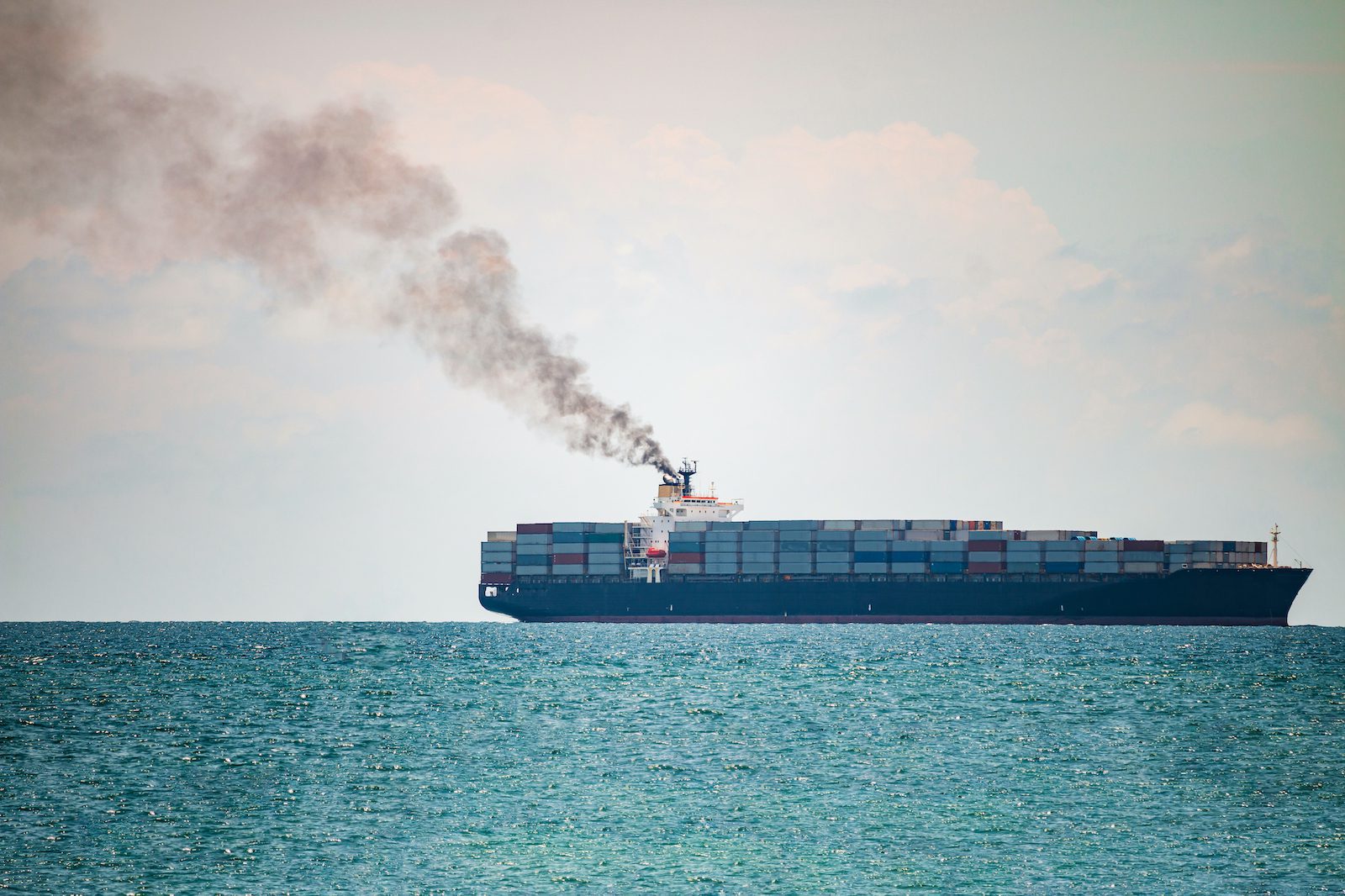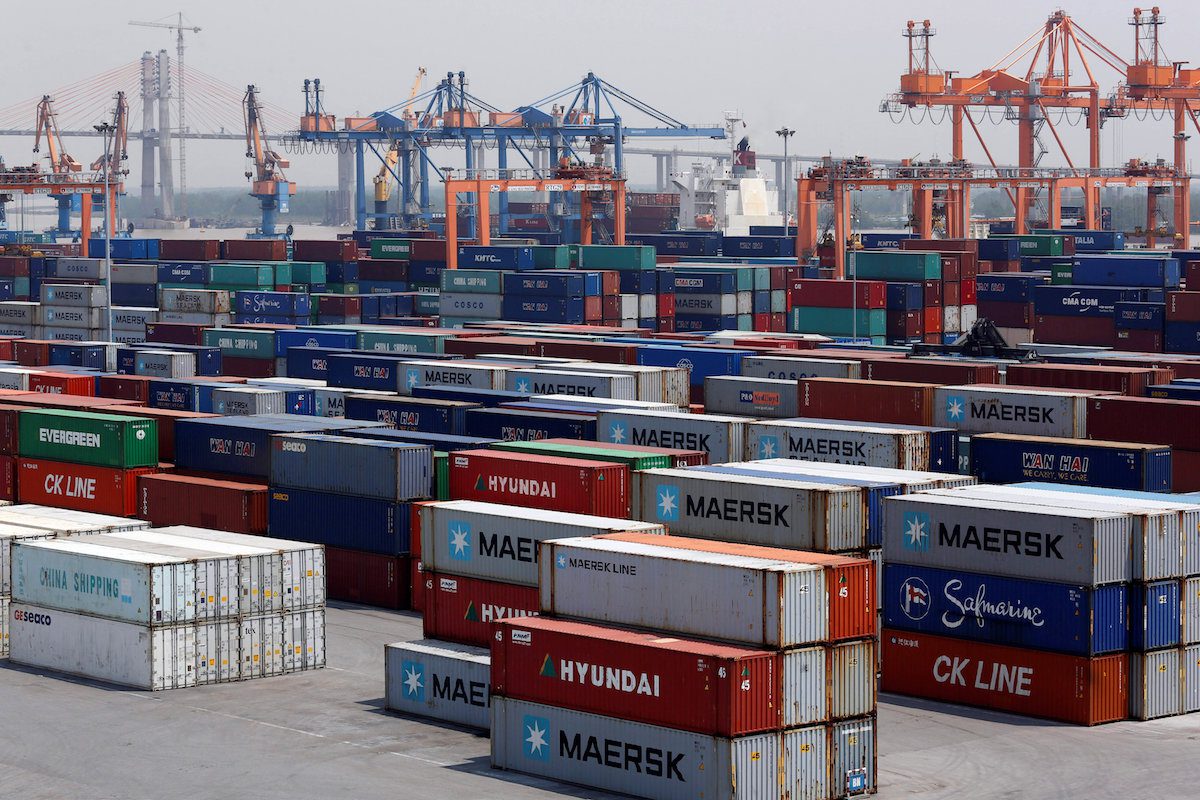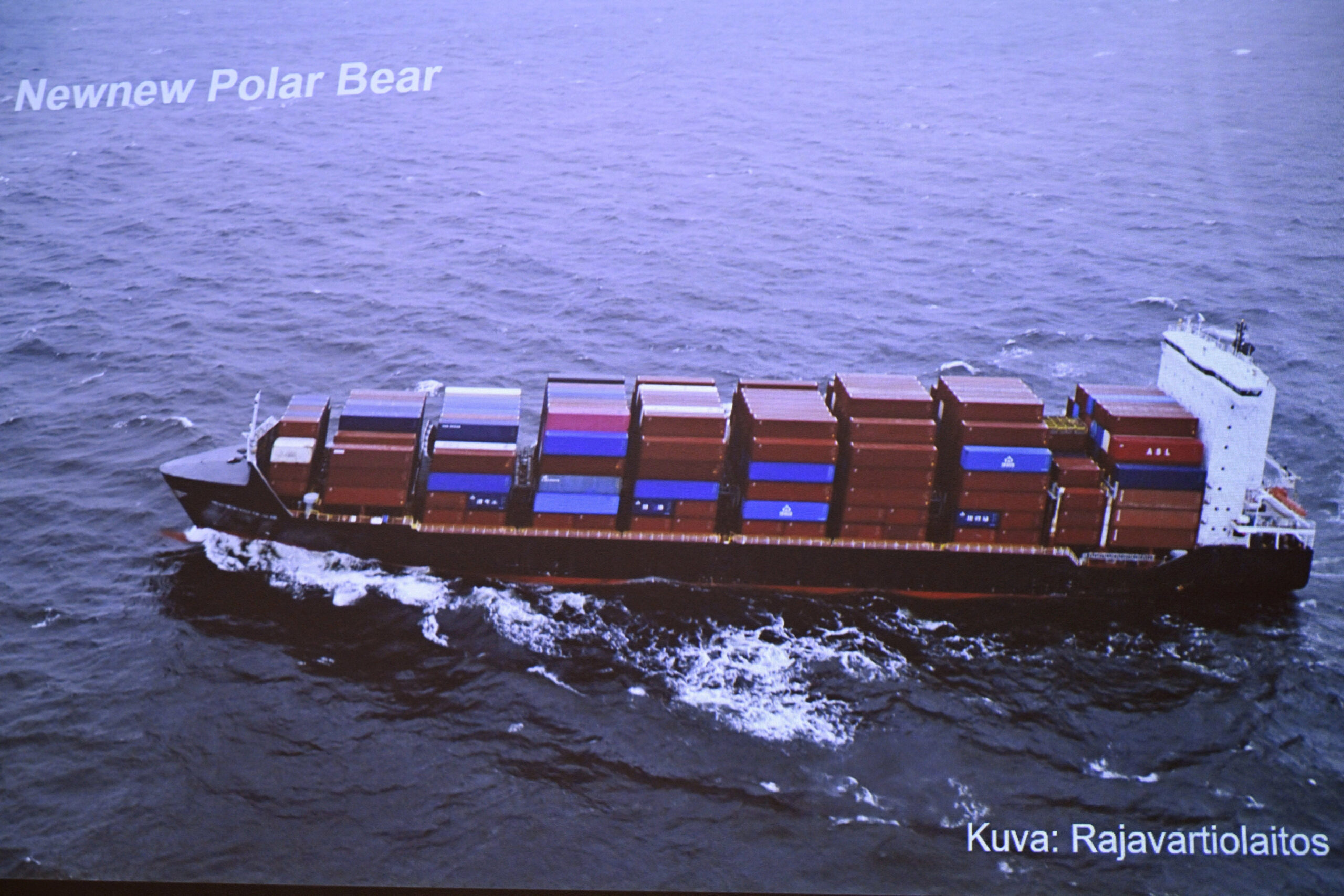The World Shipping Council, the Washington, D.C.-based trade association representing international liner shipping, is sharing for the first time concrete regulatory and economic pathways that it believes the International Maritime Organization must take up in order for the shipping industry to achieve zero carbon emissions.
The WSC has identified six regulatory and economic pathways forward, which WSC says are critical for the nations of the UN International Maritime Organization (IMO) to address for a successful maritime energy transition.
In June, IMO’s Marine Environment Protection Committee will meet for its 78th session (IMO MEPC 78) to consider further development of IMO’s GHG Strategy, which has been scrutinized for not aligning with the goal of the Paris Agreement to limit global warming to well below 2 Celsius compared to pre-industrial levels.
In 2018, the IMO adopted an initial strategy to reduce total GHG emissions from ships by at least 50% by 2050, compared to 2008 levels, but details are still being hammered out and a final strategy is not expected until 2023.
“There will be no single or simple fuel technology solution, no single party that can set the pace, no single regulation that will drive the necessary change,” the WSC said in press release. “The reality will be a complex multi-technology, multi-stakeholder development process that needs to be driven and supported by an array of mutually reinforcing global regulations. Maritime actors, technology providers, fuel innovators, organisations and regulators will need to work together to decarbonise shipping in line with the Paris agreement.”
Read Also: World Shipping Council on Moving the IMO Along: Shifting from the Political to the Practical
The maritime shipping industry is estimated to account for nearly 3% of the world’s CO2 emissions.
WSC President and CEO, John Butler, says the liner shipping sector understands the “shared responsibility” for the maritime industry to reduce GHG emissions and “we don’t underestimate the challenge,” but he points out that the industry is currently lacking the regulatory framework needed to address key issues.
“We are committed to decarbonising shipping and have multiple ideas and projects in the pipeline. But to be able make these investments, to take the necessary risks, we – and all other maritime actors – need a regulatory framework that addresses the key strategic issues,” says Butler.
“We are now offering our perspective on the critical pathways the IMO should consider as it tackles this global challenge. Action is needed now by the governments of the IMO so as not to stall development but rather to support ambitious innovators and front runners,” he adds.
WSC has identified six regulatory and economic pathways, which it says are all critical for the IMO MEPC to successfully navigate the maritime energy transition. The pathways include:
- A global price on carbon combined with dependable and broad-based “buy down” programmes that effectively level the playing field among newer low and zero GHG ships and the tens of thousands of ships that will still be burning conventional fuels. This will play a large role in making it possible for companies to put zero GHG ships on the water and to operate them competitively.
- Transparent well-to-wake life cycle analysis of fuels, breaking out well-to-tank emissions and tank-to-wake emissions, combined with regulatory mechanisms to incentivize first-movers for use of alternative fuels that offer significant GHG reductions even if they are not available from fully renewable sources from the start.
- Integrated development of global production and supply of zero GHG fuels through partnerships between IMO member states and energy providers, as well as regulatory provisions that allow for flexibility in the initial stages of the energy transition, given that zero GHG fuels will not be available at the same time around the globe.
- A Green Corridors Programme to accelerate an equitable fuel and technology transition, introducing zero GHG ships and fuels across trade lanes where the necessary shoreside energy infrastructure is first available. This will speed development of best practices and encourage IMO member states and interested parties to focus on government-to-government initiatives and coordinated public-private investments to build the necessary production facilities and supply infrastructure.
- New build standards that support the energy transition, such as requiring ships built after a certain date to be able to operate on zero GHG fuels or not allowing the construction of vessels that can only operate on fossil fuels after a certain date.
- Applied R&D for shipboard and shoreside systems that allow the safe use of zero GHG fuels is necessary to put zero emission ships on the water. To avoid accidents and stranded assets, a significant increase in the level of R&D effort and investment is needed to develop the technologies necessary to use the most promising fuels onboard transoceanic ships.
The pathways are further detailed in WSC’s submission to the IMO. “Each and every one of these elements should be part of an expanded IMO GHG Strategy, and WSC looks forward to working with member states and organisations to develop and integrate these elements into explicit regulations and programmes,” the WSC said in its statement.
“We are looking to decarbonise shipping as soon as possible and will continue to lead the way in enabling shipping’s transition to zero. But we cannot do this alone,” says Butler. “If we are to decarbonise shipping in line with the Paris agreement, the governments of the IMO must work together. For the sake of future generations and the future of shipping, our focus in the coming years must be to develop and implement innovative, concrete and equitable global regulatory frameworks.
“These are complicated matters and we do not pretend to have all the answers. What we do know is that we must develop these critical pathways together to address the climate challenge and transition the fleet to zero GHG ships,” Butler concludes.

 Join The Club
Join The Club











